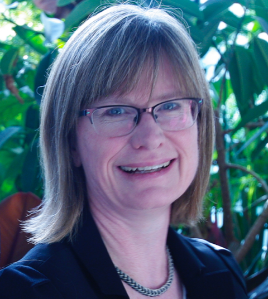Scientific Advisors
 Marc Albertsen, PhD
Marc Albertsen, PhD
Marc Albertsen formerly led the Hybrid Platforms group at Corteva Agriscience, responsible for delivering hybridization platforms to crop plants. He was also Corteva's Ag Equity Initiatives Lead tasked with facilitating the delivery of technologies that can improve the lives of resource-limited farmers. He brings over 40 years of studying plant reproductive biology and how to apply that knowledge. Recently retired, he remains committed to the application of technology to improve crop productivity.
 Professor Arp Schnittger, PhD
Professor Arp Schnittger, PhD
University of Hamburg, Germany
Arp Schnittger is the head of the Department of Developmental Biology at the Institute for Plant Science and Microbiology, University of Hamburg, Germany. He studied Biology at the University of Tübingen, Germany, and the University of Washington, Seattle, USA. He received a Ph.D. in Genetics from the University of Tübingen and completed his habilitation in Botany at the University of Cologne. He holds the position of Directeur de Recherche Première Classe (DR1), appointed by the Centre National de la Recherche Scientifique (CNRS), France. Since 2014, he has been a full professor at the University of Hamburg. His research interests focus on the control of cell division during development, particularly during plant reproduction, with a specific emphasis on meiosis. His recent efforts address the question of how environmental factors, in particular heat, impact on meiosis. Additionally, he studies the plant’s DNA damage response, specifically homologous recombination repair.
Scientific Advisory Board
 Luca Comai, PhD
Luca Comai, PhD
Genome Center of the University of California
Luca Comai is a Professor of Plant Biology at the Genome Center of the University of California at Davis. He has B.S. equivalent from the Universita' di Bologna, Italy, an M.S. in plant pathology from Washington State University, and a PhD in plant pathology from UC Davis. In his career, he has worked on bacterial plasmid genetics, plant biotechnology (glyphosate resistance via alteration of EPSP synthase), and genetics and genomics of polyploidy. He co-developed TILLING, a method to identify targeted mutations. Since joining UC Davis in 2006, he has focused on function and regulation of chromosomes in polyploid genomes, on centromere function, on gene dosage effects, and on stress-induced genome instability. Dr Comai teaches the foundation genetics course at UCD using a flipped approach. He has authored over 140 publications, has an H impact factor of 77, is a Fellow of the American Association for the Advancement of Science. In 2017 he received the ASPB Innovation Prize for Agricultural Technology.
 Kirstin Bett, PhD
Kirstin Bett, PhD
University of Saskatchewan
Kirstin Bett is a Professor in the Department of Plant Sciences, University of Saskatchewan. She teaches courses at the graduate and undergraduate level in plant breeding and plant genetics. She is responsible for a common bean breeding program that has released several varieties targeted at the short season growing regions of western Canada. She has also established a complementary genetics program that uses classical and molecular techniques to better understand the traits that lead to the development of superior pulse crop cultivars. This has included work in seed quality, disease resistance and flowering time and has extended to the use of wild species as a source of useful variability. She has been involved in the development of genomic resources for lentil and bean including leading the effort to sequence genomes of lentil and its wild relatives. She currently has a Genome Canada grant to work on the genetics of seed quality traits in lentil - a natural progression from her previous Genome Canada grant on domestication and adaptation in lentil. She has been involved in the USask-led Plant Phenotyping and Imaging Research Centre since its inception and has several digital imaging projects in progress.
 Greg Rebetzke, PhD
Greg Rebetzke, PhD
CSIRO Australia
Dr Greg Rebetzke is a translational researcher in the fields of quantitative genetics and breeding. His research extends from basic understanding of physiological factors limiting wheat performance under drought to genetic understanding and delivery of traits for rapid uptake and adoption in breeding globally. He links closely with the grain’s industry to discover, validate and fast-track uptake of new traits in breeding programs, and robust, cost-effective phenotyping methods to speed delivery to farmers. Elite germplasm from Dr Rebetzke’s program has directly delivered commercial wheat varieties and been used in population development in wheat breeding programs.
